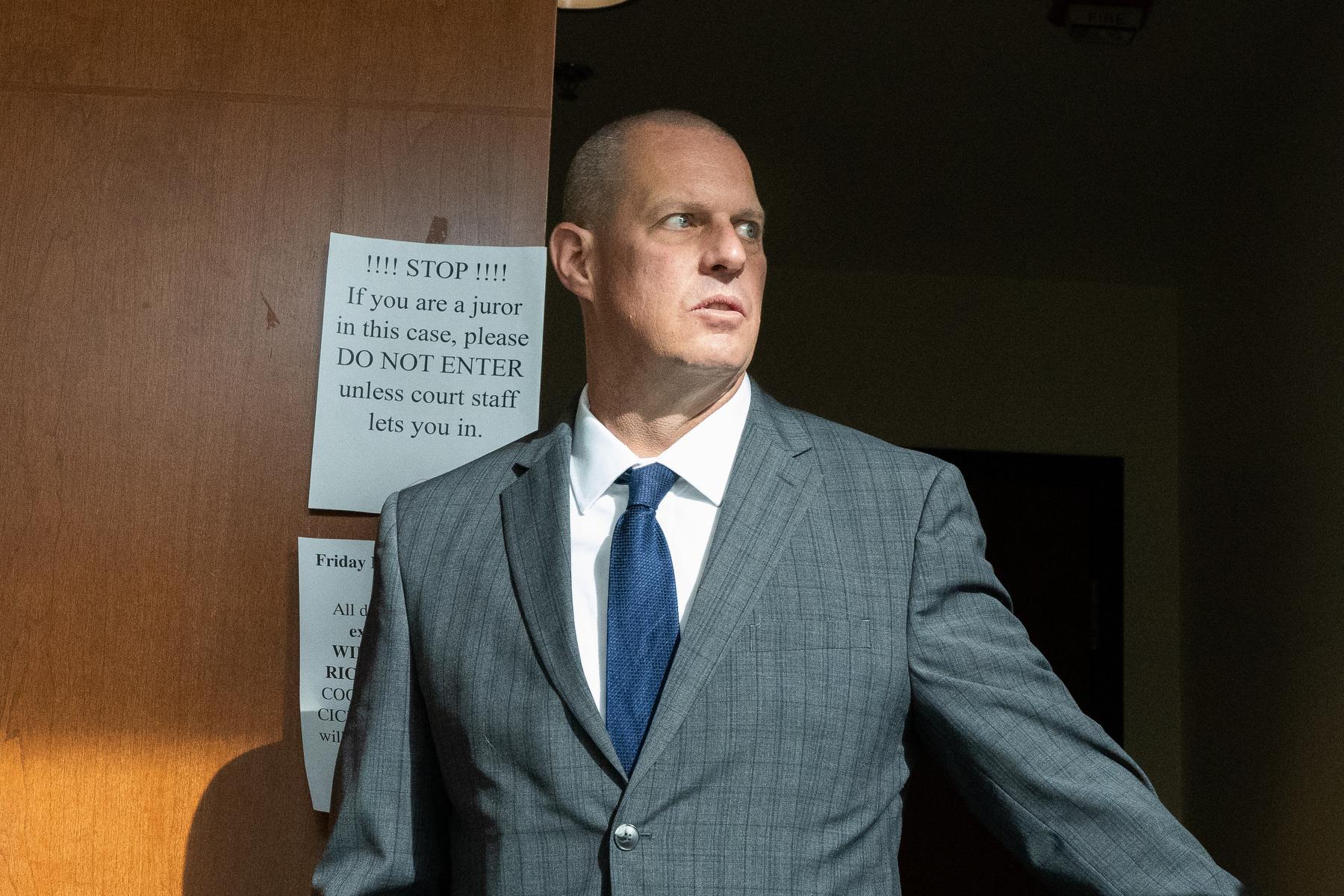
Defense attorneys for two paramedics rested their case on Tuesday after spending four days trying to raise doubt in the jury’s mind that their clients, Peter Cichuniec and Jeremy Cooper, deviated from any standard of care in treating Elijah McClain four years ago.
Throughout the testimony, jurors heard from a number of expert witnesses who said that both Cichuniec and Cooper took proper precautions when they gave McClain the sedative ketamine, which the coroner has said was a crucial reason the 23-year-old died.
Those precautions, former paramedics and doctors said, included tending to him on the scene and performing CPR in the ambulance and suctioning saliva and vomit from his throat.
Those witnesses also said that it seemed obvious at the time that McClain was suffering from excited delirium and that ketamine is a widely agreed upon and safe antidote to help people with that condition.
Cooper and Cichuniec gave McClain 500 milligrams of ketamine, which was almost 50 percent more than he should have received for his 143-pound bodyweight.
The defendants took the stand in their own defense, doubling down on McClain’s symptoms of delirium, which has since been struck from the Aurora Fire Rescue training books and all law enforcement agencies statewide.
The two paramedics also said officers failed to communicate with them about McClain’s condition, the fact that McClain said repeatedly he couldn’t breathe and that he had received two carotid holds, which cut blood flow off to his brain.
Cooper told the jury that, twice, he tried to get in to help McClain but was rebuffed by officers on the scene.
But the expert testimony and that of Cooper and Cichuniec was vociferously challenged by prosecutors who, in cross-examinations, poked holes in theories and exposed inconsistencies in actions shown on police officers’ body worn camera footage and versions of stories told to jurors.
Body camera footage doesn’t show Cooper or Cichuniec challenging the officers’ actions that night nor does it show either of them getting on the ground to check McClain’s vital signs or his airway before administering the ketamine.
In Aurora Police tapes recorded a couple of weeks after McClain’s death and played by prosecutors, both Cichuniec and Cooper gave changing stories about McClain’s excited delirium “symptoms” to investigators. Cooper said, in that tape played to the jury, that McClain was trying to walk up the embankment at one point.
In reality, McClain never was off the grass and out of handcuffs the entire time paramedics were there.
Body camera footage doesn’t show officers rebuffing them or refusing medical attention for McClain, and one supervising police sergeant on the scene that night testified he would never have stood in the way of McClain receiving medical help.
McClain’s cause of death has also been a major point of contention throughout all three trials — this case could pivot on it.
One defense expert witness, a forensic pathologist from Michigan, said that McClain died from aspiration from inhaling his own vomit on the scene with officers. Another defense expert witness, Dr. Sri Sundaram, a local cardiologist, said he believed McClain died from a cardiac event.
Even McClain’s official cause of death has been changed by the very person who conducted his autopsy, forensic pathologist Dr. Steven Cina. Cina’s initial report called McClain’s death “undetermined” but he changed it during the grand jury investigation, and he told jurors in this trial that he thought that ketamine was ultimately responsible for McClain’s death after he violently struggled with police officers for more than 15 minutes.
On Tuesday, prosecutors asked the judge for another round of witnesses to rebut some of the defense’s testimonies.
Adams County Judge Mark Warner denied that request and closing arguments are now expected to start tomorrow afternoon.








